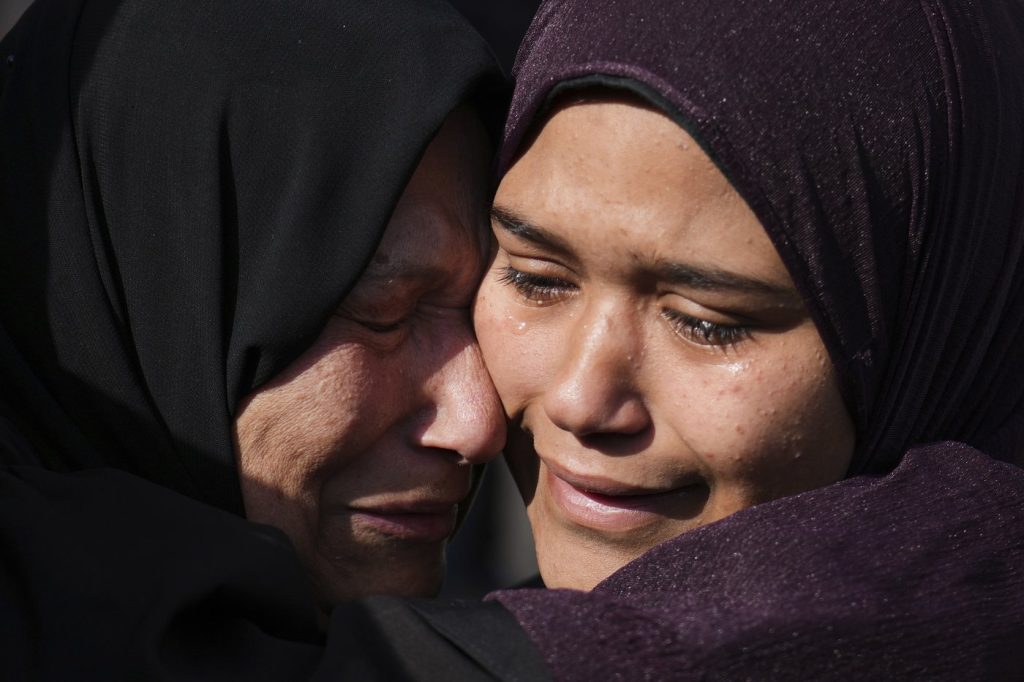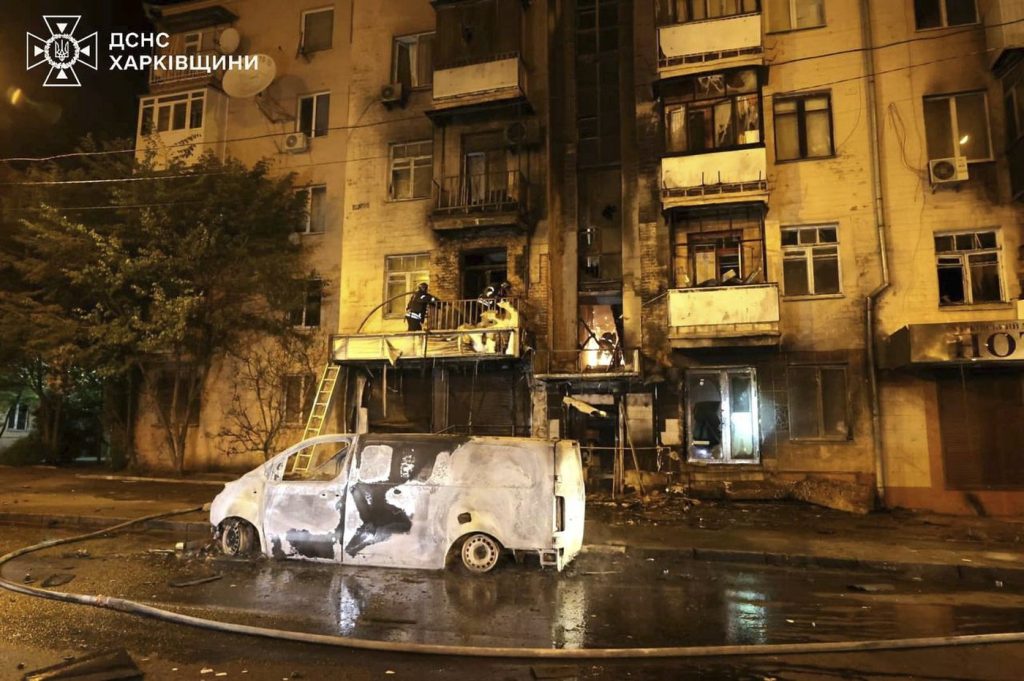TEL AVIV, Israel (AP) – Armed groups have increasingly looted warehouses and shops in northern Gaza, a situation driven by escalating desperation following over two months of a severe blockade imposed by Israel. Witnesses and aid workers reported that numerous individuals, both armed and unarmed, began looting from warehouses belonging to U.N. and aid organizations, as well as local bakeries and stores starting Wednesday, amid ongoing Israeli airstrikes that resulted in several fatalities, including children.
The humanitarian crisis in Gaza has reached critical levels, with more than 2 million residents suffering due to the blockade enacted by Israeli Prime Minister Benjamin Netanyahu after the end of a ceasefire with Hamas in March. This is believed to be the worst humanitarian emergency in nearly 19 months of conflict. The Israeli government claims the blockade and military actions aim to compel Hamas to release the remaining 59 hostages, most of whom are presumed dead, and to disarm the militant group.
The U.N. High Commissioner for Human Rights has previously declared that using starvation against civilians as a military tactic constitutes a war crime. As reports of looting spread, relief organizations warned of escalating desperation, predicting a potential breakdown of law and order. Although looting has occurred sporadically throughout the conflict, the recent surge marks a disturbing trend as it has become less organized and has spread into urban settings.
The looting incidents in Gaza City reportedly began on Wednesday evening, fueled by rumors of aid trucks arriving from the south. A security report indicated that armed individuals broke into a bakery, but upon finding it empty, they proceeded to target a soup kitchen run by an international aid group located in the al-Shati camp. In a separate event, the U.N. Relief and Works Agency (UNRWA) evacuated its staff safely after a large group of Palestinians breached its Gaza City field office to take medications, which prompted Louise Wateridge, a senior emergency officer at UNRWA, to describe this looting as a direct consequence of unbearable and prolonged deprivation.
The looting persisted into late Friday, with eyewitnesses reporting groups of armed men storming various U.N. warehouses. Local security forces were overwhelmed, and these operations marked a significant escalation from previous incidents. Two residents noted witnessing major confrontations between these groups and police, particularly during the nighttime hours.
In response to the looting, Gaza's interior ministry reported having killed six suspects and injured 13 in the last two days, as they instituted a curfew along some of Gaza City's primary streets. The al-Najjar family, a prominent family in Gaza City, publicly condemned the looting, advocating for respect and protection of both public and private property in their statement, which rejected the chaos that undermines national interests.
Amid rising tensions, families in northern Gaza, like that of Faten Al-Sabbagh, expressed growing desperation, fighting over limited food supplies at distribution sites. Al-Sabbagh explained the dire need to provide for her family of eight, lamenting the lack of basic necessities and high prices due to the economic conditions and absence of salaries.
Meanwhile, Israeli airstrikes continued unabated, with recent attacks resulting in at least 17 fatalities, including children, in locations like Khan Younis. Reports confirmed the deaths of entire families and newly married couples among the victims of these strikes, which occurred late on Friday night. The Israeli military, however, refrained from commenting on the specific strikes without provided coordinates.
In summary, the situation in Gaza has reached a critical junction as ongoing violence, severe deprivation, and lawlessness threaten the fragile fabric of society. With international bodies urging action and humanitarian assistance remaining critically low, the plight of civilians continues to escalate amidst the chaos.












